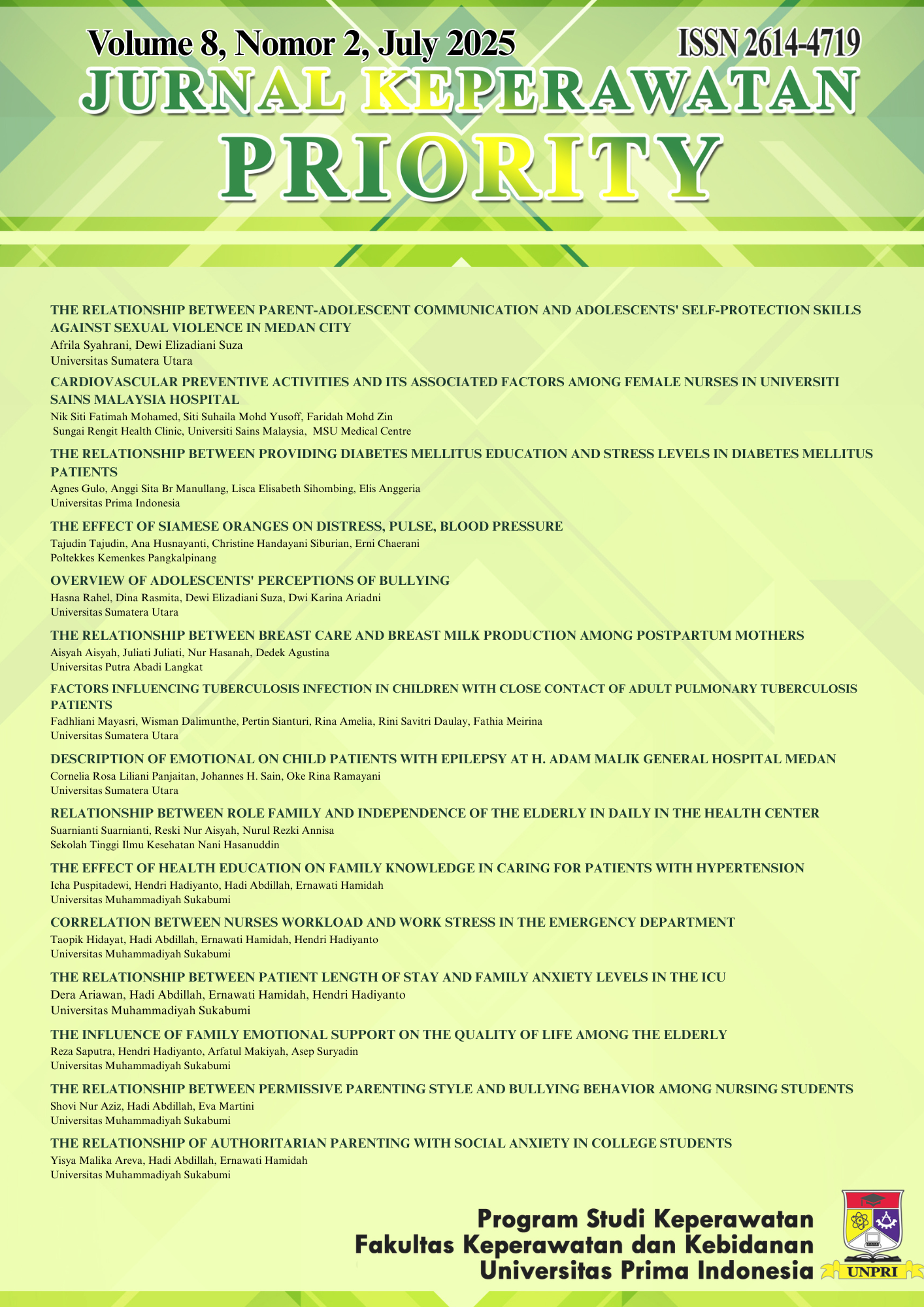The Relationship Between Providing Diabetes Mellitus Education and Stress Levels in Diabetes Mellitus Patients
##plugins.themes.academic_pro.article.main##
Abstract
Diabetes is a metabolically complex disorder characterized by chronic hyperglycemia caused by abnormalities in insulin production and function. Diabetes is classified into type 1 and type 2. Type 1 diabetes is triggered by an autoimmune process that damages pancreatic beta cells, whereas type 2 diabetes is characterized by insulin resistance. The purpose of this study was to identify the relationship between diabetes mellitus education and stress levels among patients with diabetes mellitus at UPT Puskesmas Sei Agul. This research employed a correlational design with a descriptive approach, using a cross-sectional method to examine the relationship between two variables: the independent variable and the dependent variable. The sampling technique used was total sampling, involving 50 respondents. The results showed a significant relationship between the provision of education and stress levels among respondents. Specifically, 10.0% of respondents with poor education experienced severe stress, while in the good education category, 78.0% experienced mild stress and 12.0% experienced moderate stress, with no cases of severe stress. Statistical analysis revealed a p-value of 0.001, indicating that the level of education significantly influences respondents’ stress levels. In conclusion, there is a significant relationship between education and stress levels, suggesting that effective counseling and education play an important role in reducing stress among patients.
##plugins.themes.academic_pro.article.details##

This work is licensed under a Creative Commons Attribution 4.0 International License.

 Journal of Nursing Priority is a nursing journal managed by the Faculty of Nursing and Midwifery of the University of Prima Indonesia, which is published twice in the discussion of research article spaces in the field of nursing such as surgical medical care, emergency nursing, maternity nursing, child nursing, child nursing, child nursing, gerontic nursing, nursing family, community nursing, nursing management, and other health fields.
Journal of Nursing Priority is a nursing journal managed by the Faculty of Nursing and Midwifery of the University of Prima Indonesia, which is published twice in the discussion of research article spaces in the field of nursing such as surgical medical care, emergency nursing, maternity nursing, child nursing, child nursing, child nursing, gerontic nursing, nursing family, community nursing, nursing management, and other health fields.